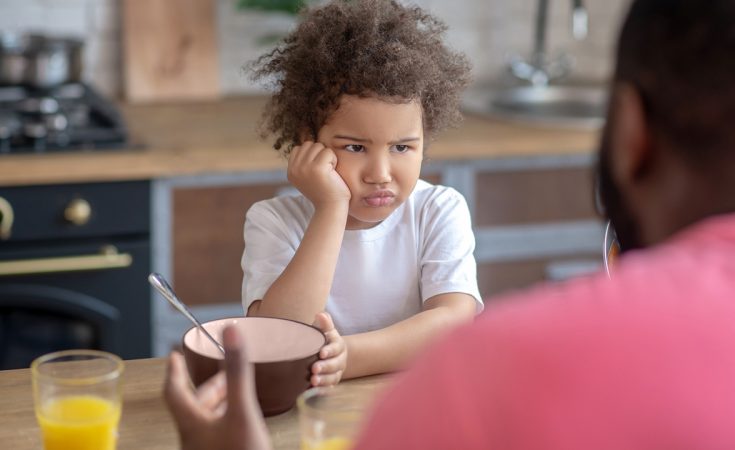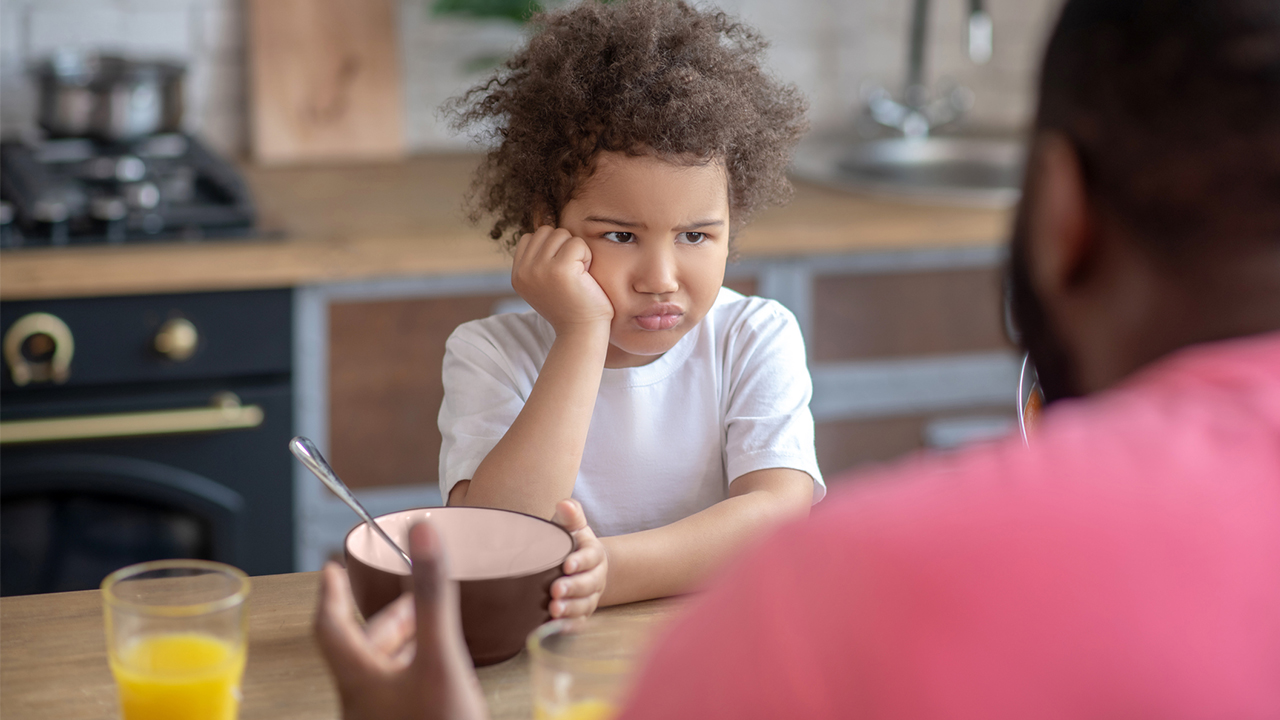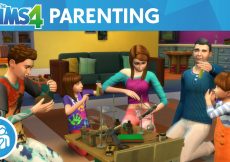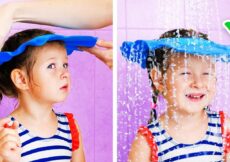Decision fatigue can make us irritable and exhausted—and thanks to their immature frontal lobes, it affects kids even worse than grown ups.
“Shall we read Curious George?” I ask my toddler. We’re in the middle of lunch, but reading has become a necessary distraction for her active and loitering mind during mealtimes.
“No,” she replies, without a second thought.
“Love You Forever?”
“Not that one.”
“The Wonderful Things You Will Be?”
“Noooo,” she wails in exasperation.
And the cycle continues until we reach the end of the basket of books that I’ve placed strategically next to her chair at the table.
She may only be 18 months old, but my daughter is an avid reader. She loves spending time with me flipping through pages and naming pictures together. When I discovered that she would finish her meal with (relative) ease with a good book in front of her, I welcomed this as a happy alternative to screen time. So, when she began rejecting books with her food, even her usual favourites, I couldn’t understand it. I was even letting her choose the book!
Therein, I realized, lay the problem: She had too many to choose from.
It was a moment of epiphany for me—although it should not have come as a surprise given my parallel experience in my adult life. Like most of us, I’ve spent many a night endlessly scrolling through Netflix, only to realize that it’s now too late and I’m too tired to watch an entire show or movie. I’ve succumbed to the habit of keeping open several carts when online shopping, filling each cart meticulously after hours of careful scrutiny, but not quite ready to make a purchase, because there just may be a better product being sold at a slightly better deal at the next store. The consumerist world that we live in simply provides too many choices for our minds to digest, and this is becoming a problem, for adults and children alike.
The research on decision-making and cognition has been providing insight on this for years. Studies show that when consumers are provided with 20 to 30 varieties of a product to choose from, they’re less likely to buy it, and feel more regret for their choice, compared to when they are provided with only six options.
It may seem counter-intuitive at first. After all, we all demand choice in different domains of life because we think that the freedom to choose and compare between alternatives will empower us to make a choice that is perfect for us, which would naturally lead to greater levels of happiness and satisfaction. But the research shows that with more choice, people actually become more frustrated with the decision-making process, less inclined to follow through with a decision, and less satisfied with the choice that they finally do opt for. This has been shown not only with our shopping habits, but also when making choices about the kind of healthcare we want to receive, the way we manage our finances, and how motivated we are in school. We are a society that is haunted by thoughts of making the “wrong” choice or losing out on the potential to make a “better” one.
As humans, we have a limited amount of mental resources and energy to expend. Decision-making takes up a large part of our cognitive reserve. When we are forced to make too many (often trivial) choices throughout the day, we are actually using up our limited resources, which can make us feel overwhelmed and irritable. This is known as decision fatigue.
If making choices can be so hard for us as adults, imagine the impact it can have on our kids, whose frontal lobes are still immature and developing. Decision fatigue can actually lead us, and our kids, to making poorer, more impulsive decisions when we are burdened with too many choices to make in a day. And in kids as young as 18 months old, giving them too many options in the playroom can actually have a negative effect on their attention and creativity.
As parents, we are often tempted to buy new toys to stimulate our kids and keep them engaged for longer. But studies show that we may actually be setting them up for the exact opposite. Having more toys in a room leads toddlers to spend less time engaging with any one toy in a meaningful way. This is because they are just too distracted by all of the toys available to them, and are left constantly deciding which toy they should pay attention to and play with.
Making choices is an important skill and habit for children to explore and cultivate when provided with age-appropriate choices. The goal is to help children learn to feel confident in the process of making decisions for themselves, a skill that they will need to use independently as they grow and find themselves at crossroads that shape their journeys. A toddler may be asked to choose between eating cucumbers or cookies as a snack, or between wearing old sneakers or cute floral sandals that match perfectly with her floral dress (of course, my daughter chose the former, but hey, it’s her choice!). A school-aged child may find herself choosing which extracurricular activities she wants to participate in her spare time. A teenager may be limited to choosing from several high school elective courses that he is interested in.
Giving kids the freedom of choice allows them to feel involved in their own well-being, have an important role in their family, gain a sense of independence and build their self-esteem. The challenge as a parent is to find a comfortable balance between building their confidence in the decision-making process and protecting them from getting bogged down by the trivial decisions that can negatively impact their mental well-being. Sometimes, this can mean protecting ourselves from the plethora of choices being marketed to us as parents—choices that only add to our mounting pressures.
So at one-and-a-half years old, perhaps presenting my daughter with a basket full of books at mealtime was the wrong way to go. A more age-appropriate approach would be to give her the choice between two of her favourite books instead. This way, she can feel happy to have made her own choice without feeling overwhelmed in the process.
As an adult, I’ve experienced how relieving it can feel to take a step back from subjecting myself to endless options and decisions in my vast world. I can turn off the TV, take social media breaks, and disconnect to preserve myself. As my daughter is at the cusp of learning how expansive her world is, I’m learning that I have an important role to play in helping her step back when she needs it. And in the process of exercising her freedom of choice, my hope is that she will learn to choose how much is “enough” for her.



































